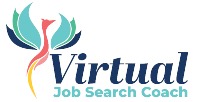Having to look for a new job for the first time in a long time? Or maybe you’re a student just starting out, or a stay-at-home parent looking to enter the workforce. The approach to job search has changed from what it was even a few years ago.
Today I am going to dive into how you can make your job search faster and easier – and here are my 4 Strategies to help you do just that:
STRATEGY #1

CREATE AN ACTION PLAN– When you are unemployed, job search should be your full-time job! When you are employed but wanting to find a new job, change careers, or industry, your job search needs to become your part-time job.
To effectively find and land your next job you need a plan of action to follow. This will keep you accountable and on track with what your objectives are and what you need to do to meet those objectives. You wouldn’t drive across the country without planning your route, you wouldn’t build a house without having blueprints drafted right? So, searching for your next job also requires creating a plan. If you want to be successful and find your new job FAST, then you need to be disciplined in your job search, to dedicate a set number of hours per day or per week for your job search activities.
If you are working full-time then I would suggest you dedicate 10 hours a week to job search. If you are unemployed then you should treat your job search like any other job, dedicating 7 to 8 hours per day to your job search activities. Your next job isn’t going to come to you, you must get out there and find it! What you might not realize is that 80% of jobs are filled through the hidden job market (that is 8 out of 10!) and are NOT advertised!
You can create an action plan template in a spreadsheet to keep track of what positions and companies you have applied to and when, who you applied to, who you spoke with, when you followed up, notes on your conversations, reminder notes of when to follow-up, and which resume/cover letter you sent. I have created a simple google sheets template for you that you can download for FREE using this link.
One of my tips for job seekers is to utilize the hidden job market when searching for your next job because it truly is the most effective means for finding your dream job. If 80% of jobs are not advertised, then only 20% of jobs are, which means for every 100 jobs out there that you are qualified for, only 20 will be advertised! The other 80 are filled through what is called the hidden job market.

Now, let me explain 9 Reasons Why 80% of Jobs Are Not Advertised:
- Employee referrals have the highest ROI (Return on investment). 88% of employers said that employee referrals are the #1 best source for above-average applicants (Dr. John Sullivan Research) 82% of employers rated employee referrals above all other sources for generating the best return on investment (CareerBuilder).
- Employee referrals reduce the time to hire and cost of hire. The cost ranges from $1,000 (entry-level roles) to $5000 for most employers with the average being around $4,000 (Workopolis) Recruitment firms typically charge 20-25% of the position’s annual salary meaning a $100k position is going to cost an employer around $20-$25K.
- Advertised jobs on average take 7 to 16 weeks from the time of posting until the employee start date, whereas employee referred candidates are 55% faster to hire (HR Technologist).
- Referral hires have a great job satisfaction rate and stay longer at companies 47% stay over 3 years, compared with less than 14% from job boards(UndercoverRecruiter).
- Some companies promote from within, which opens a more junior or different lateral position that hasn’t been advertised yet.
- An employee leaving gives an opportunity for the company to re-evaluate/restructure and potentially change the position they will hire for.
- In large companies sometimes they forget to post the position or get the message to the HR/recruitment department. This may be hard to believe, but it does happen!
- Many companies dread receiving and sifting through hundreds of under-qualified or unqualified applicants that apply to the job posting through job boards. Therefore, many use ATS systems (Applicant Tracking Software Systems) which are often ineffective in screening candidates with poorly written resumes.
- Often a position doesn’t exist, but through using hidden market job search strategies an employer will create a position for the “ideal or right fit” candidate.
So, now that you understand some of the reasons WHY jobs aren’t advertised. Let’s talk about how you should be spending your time looking for your next job. My GOLDEN RULE #1 for a successful job search is to not spend more than 20% of your time looking for your next job through online job boards. If only 20% of jobs are filled through online job boards, then it makes sense that no more than 20% of your job search time should be spent on that task, right?
In other words, if you spend 10 hours a week on job search then no more than 2 hours should be spent searching online job boards – your other 8 hours should be spent on more effective and proactive job search techniques such as networking and investigational/informational interviewing.

Also, consider that some online application processes are long and complex, and to do a proper job of completing them can take as long as 60 minutes (for ONE application!), and you are one of HUNDREDS of other potentially qualified candidates applying for that very same job…so is this really the most efficient and effective use of your job search time? This is why by using this method, your chances of getting shortlisted are small.
I am not saying don’t use online job boards as a method in your job search, but please don’t put all of your eggs in one basket and rely on this as your sole strategy to find your next job, or you could be looking for work for a very long time.
STRATEGY #2
Build Your Network – If you don’t have a huge network, that’s okay – it is never too late to start building one. Networking is one of the fastest ways to tap into the hidden job market.
To build your network, start with people you know like friends and family. If you are new to an area then LinkedIn is a great place to start and my #1 choice for making new connections, building relationships with potential employers, and seeking job leads, AND it’s COVID-19 friendly because you can do it from the comfort of your own home.
Most people who are on LinkedIn are on it for reasons related to networking, professional development, business development, job search, or for sourcing out and recruiting new employees and potential candidates. And the best part about LinkedIn is it’s absolutely free!
You can also expand your network by joining local clubs/associations (chamber of commerce, rotary, meet-up groups), attend local or remote networking events and you can even utilize social media groups to expand your network of connections. Don’t approach people immediately asking for a job or if they are hiring (that’s like asking to get married on the first date). Have a chat, make the connection, get their contact info, and start building a relationship with them and then work your way up to asking them about job leads.
Now that we’ve gone over how to build your network, in order to make ensure your confidence and make your networking go smoothly you should have a 60 Second Statement (also known as an Elevator Pitch or introductory statement). This statement should be well-composed, thoroughly rehearsed, approximately 60 seconds, and fluently and concisely articulates your background and relevant education, key strengths, skills, and attributes, 1 or 2 relevant accomplishments if possible, AND what career position you want.
You can use your well-designed 60 Second Statement in any networking situation whether you’re at a formal event or a party with new friends. Now keep this in mind when developing your statement- Employers pay for talent – so know your strengths and the value you bring. Effective and successful job search, as well as successful interviews, is about 75% preparation and 25% execution!! You have 60 seconds to sell yourself (and you only get ONE chance to give the best possible first impression!) whether you are in a formal interview or casual setting.
Therefore, you NEED to write it down and practice your delivery in front of a mirror so you can improve if necessary, your eye contact, hand gestures, body language, verbal, and non-verbal communication skills. You want to memorize and practice being able to speak your 60-second statement naturally and comfortably.
STRATEGY #3
Have an Outstanding Resume – Everyone seems to think they can easily write their own resume but in my over 25 years as a Hiring Manager and Recruiter, I have probably had more than 10,000 resumes cross my desk, most of which I could say are poorly written and without hesitation, I could tell you 95% of them end up in the recycle bin. So, for every 100 resumes that cross my desk, 95% do not make it into my A-pile! And my A-pile is where I choose my shortlisted applicants from.
A resume is not just a record of your work history IT’S A MARKETING DOCUMENT – it is your # 1 tool to ‘sell’ you to employers, so if you don’t want to take the time and effort to learn how to properly design and build an outstanding, keyword-rich, ATS friendly, targeted resume to showcase your accomplishments, the best you have to offer, your ideal fit and your potential, then do yourself a favor and hire a professional resume writer.

Don’t just hire from some ad in the newspaper or Craigslist from someone claiming to write resumes…make sure to hire a reputable resume writing professional with proven experience and client success. Yes it is going to cost you some money to hire a professional but it is an investment in you and in most cases 1 or 2 days pay will cover that cost – and it could the difference between you landing your next faster or not at all.
Keep in mind your resume is a living document. Unless you have a very specific job in a very specific industry and are looking for exactly the same situation, then it is difficult to design a resume that will fit 100% for every job you apply for…you will need to review every job posting, job description, and research every company you want to apply to and ensure you have the appropriate keywords incorporated into both your resume and cover letter when applying to postings.
It is important that along with your outstanding, targeted resume, you also have a targeted cover letter. Similarly, to your resume, your cover letter needs to be targeted to the specific job and company you are applying for. If you are going to put in a poor effort you will get poor results. Your cover letter is meant to complement your resume (not parrot it), it is the appetizer to your entrée. This is why unless you are a senior-level executive where up to 2 pages can be appropriate and acceptable, in general, you want to try to keep your cover letter to 1 page (no one wants to read a novel).
Your cover letter should be compelling yet concise, prove why you are the ideal candidate for the position/team and company, demonstrate a relevant accomplishment or two that will intrigue and entice the reader to want to meet you for an interview.
If you are applying to a posting then you want to address your strengths that match the requirements – use power words/action verbs that demonstrate your skills and abilities. Do your research! – learn about your company target by checking out their website, read news articles, see what past and current employees say about them, what their values are, their philosophies, and get a sense of their culture and style. If they have a modern, outside-the-box, creative language style in their communications, then mimic that style and tone a little in your cover letter.
Your cover letter also needs to be well-written because it is an example of your communication style and skills. Spelling, grammar, and well-written English are important so unless you excel at writing, I would suggest having a professional resume writer write you a foundational cover letter (that you can edit as necessary).
DO NOT use a form letter off the internet and do not use a generic one-size-fits-all letter! I can spot a ‘canned’ form letter a mile away and if your letter looks and reads as generic, then it usually won’t be read and makes the time you put into your application a waste. You can have an excellent foundational letter written by a professional that covers most of your relevant key skills, uses action words, and demonstrates relevant accomplishments that I mentioned earlier, based on your job target. But you will likely need to customize your letter for each job you apply for so that your letter addresses the appropriate keywords in a posting or mimics the tone of your target employers’ culture.
STRATEGY #4
References –Have at least 3, ideally employment references (referees) at the ready and make sure they are aware you are actively looking for work! Your references can also be one of your great networking sources for new employment! – if they are willing to positively rave about you, then they will also likely be eager to keep their eyes and ears open for new opportunities for you.
Make sure you have ‘coached’ your referees, and here are 3 pointers:
- Make sure they clearly understand what your future job target is (if you are applying for a management role but worked for your referee as an assistant – they may speak to and promote all the wrong skills and strengths).
- If you haven’t worked with your referee for a couple of years or more, make sure they have an up-to-date copy of your resume and understand what skills you have developed, gained, or improved upon since you last worked with them.
- When you are called for an interview and you suspect you will be shortlisted for final selection, send your referee a copy of the job posting or job description and let them know who the company is that you have applied to, what industry they are in, and what they do….this will help your referee speak more effectively of your skills based on the anticipated needs of your target employer when they get the call.

When you are actively seeking new employment, have a professional voicemail message (remember it may be your first impression), and don’t answer the phone if you’re busy!
If you are actively job seeking don’t answer unknown calls during the day if you are not in a position to have a discussion about an interview (or possibly an impromptu phone screen interview), such as you’re in a meeting with your current boss, you’re in the grocery store check-out line or are in the middle of coaching your child’s soccer game. Have a professional voicemail message and let your voicemail do its job and call the number back when you are in a more appropriate time and place to have a discussion. If you have young children at home or household members who are always not on alert to be professional message takers, then do not put your home phone number on your resume, use your cell phone instead.
What you’ve learned here today is just the tip of the iceberg when it comes to job search strategies, career development, and interview preparation. To learn more, check out my YouTube channel (VirtualJobSearchCoach), where I post new videos every week with content to help job seekers like you, determine, pursue, and land their dream job!
If you would like one-to-one coaching to equip you with the confidence, necessary tools, critical knowledge, and strategies to find and land your ideal job – then let’s talk! You can book a complimentary 15 minute discover call directly in my calendar at https://calendly.com/virtualstacey and let’s chat about how I can help you fast-track your job search success.


